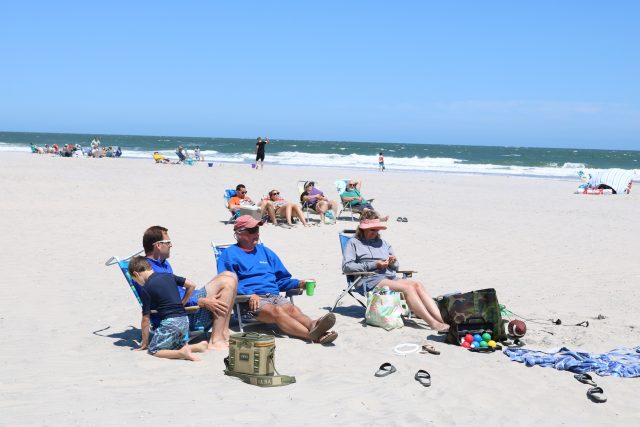By DONALD WITTKOWSKI
The weather is normally the dominant factor that affects beach tag sales, but this summer something else has entered the picture – the coronavirus pandemic.
In Sea Isle City, beach tag sales got underway late because of the pandemic. Sales slumped early on before recovering in recent weeks.
“As many folks would expect, we are somewhat behind in sales,” City Business Administrator George Savastano said Tuesday while giving a report on beach tag sales to City Council.
Savastano noted that sales initially were off about 40 percent compared to the same period last year. But with summer’s arrival, the crowds are visiting Sea Isle again and heading for the beaches after buying their tags.
“Our tag sales are coming back and obviously, as everyone knows, we have a lot of folks in town right now,” Savastano said.
As of June 21, beach tag revenue totaled $994,340, down only $21,000, or 2 percent, from the same period last year, he reported.

As an extra incentive for beachgoers during the pandemic, Sea Isle has extended the deadline for buying seasonal tags at the discounted rate of $20 until June 30. Starting July 1, the price goes up to the regular seasonal rate of $25.
Beach tags are required until Labor Day, giving Sea Isle two more full months to rake in some more revenue. People have the choice of buying daily, weekly or seasonal tags.
Year after year, beach tag sales are a key barometer of the strength of the summer tourism season. In Sea Isle’s case, the all-time record was set in 2015 with $1,471,321 in beach tag revenue.
Beach tag sales also broke the $1.4 million barrier in 2016, 2017, 2018 and 2019, but fell slightly shy of 2015’s record number.
Revenue generated by beach tag sales is an important source of funding for the city. It covers the cost of keeping the beaches clean, collecting the trash, employing lifeguards and hiring summer police officers. The revenue also helps to pay for the city’s beach replenishment projects.








